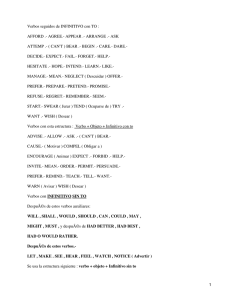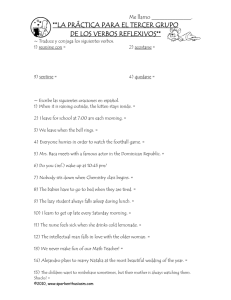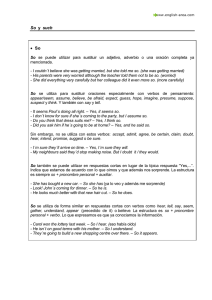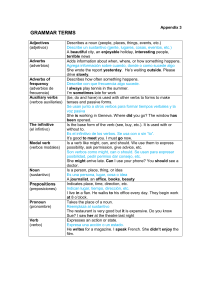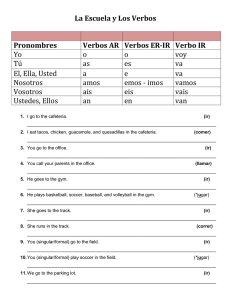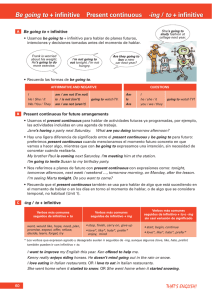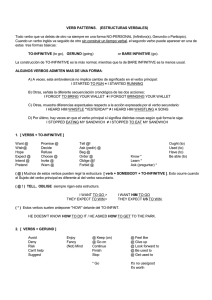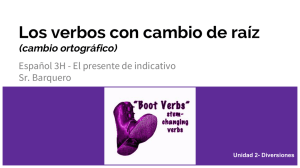phrasal verbs. teoría - IES Alfonso X el Sabio
Anuncio
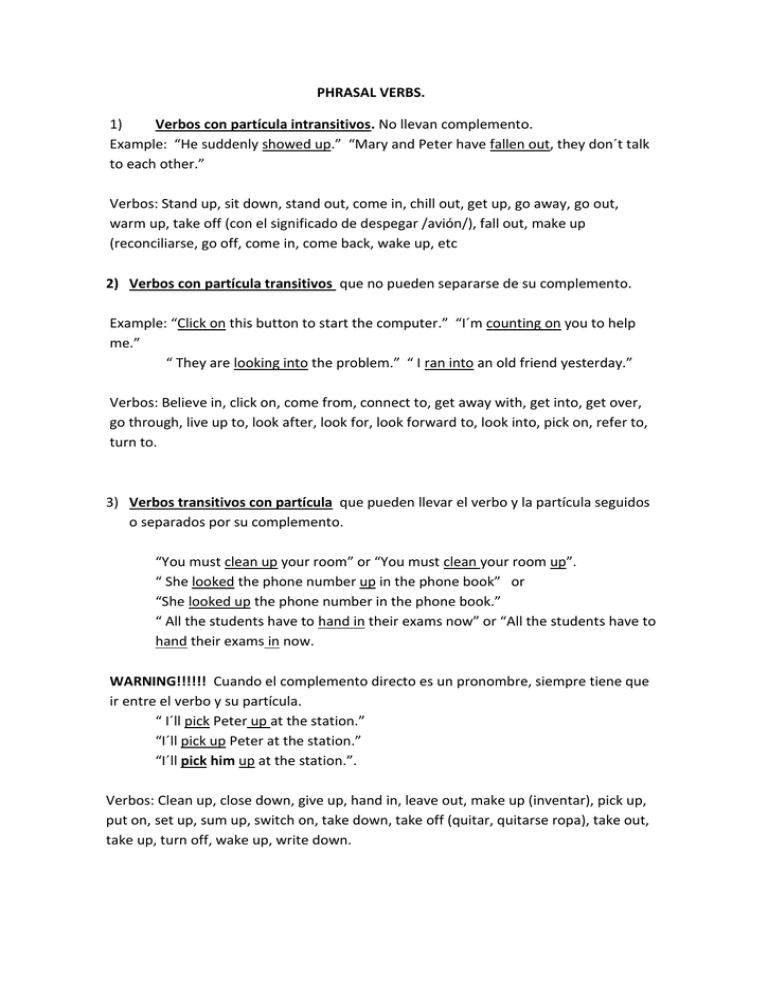
PHRASAL VERBS. 1) Verbos con partícula intransitivos. No llevan complemento. Example: “He suddenly showed up.” “Mary and Peter have fallen out, they don´t talk to each other.” Verbos: Stand up, sit down, stand out, come in, chill out, get up, go away, go out, warm up, take off (con el significado de despegar /avión/), fall out, make up (reconciliarse, go off, come in, come back, wake up, etc 2) Verbos con partícula transitivos que no pueden separarse de su complemento. Example: “Click on this button to start the computer.” “I´m counting on you to help me.” “ They are looking into the problem.” “ I ran into an old friend yesterday.” Verbos: Believe in, click on, come from, connect to, get away with, get into, get over, go through, live up to, look after, look for, look forward to, look into, pick on, refer to, turn to. 3) Verbos transitivos con partícula que pueden llevar el verbo y la partícula seguidos o separados por su complemento. “You must clean up your room” or “You must clean your room up”. “ She looked the phone number up in the phone book” or “She looked up the phone number in the phone book.” “ All the students have to hand in their exams now” or “All the students have to hand their exams in now. WARNING!!!!!! Cuando el complemento directo es un pronombre, siempre tiene que ir entre el verbo y su partícula. “ I´ll pick Peter up at the station.” “I´ll pick up Peter at the station.” “I´ll pick him up at the station.”. Verbos: Clean up, close down, give up, hand in, leave out, make up (inventar), pick up, put on, set up, sum up, switch on, take down, take off (quitar, quitarse ropa), take out, take up, turn off, wake up, write down. Verbos + adverbio + preposición : get away with, go around with, hang out with, live up to. “I used to hang out with Peter and Mary a lot when I was younger.”
